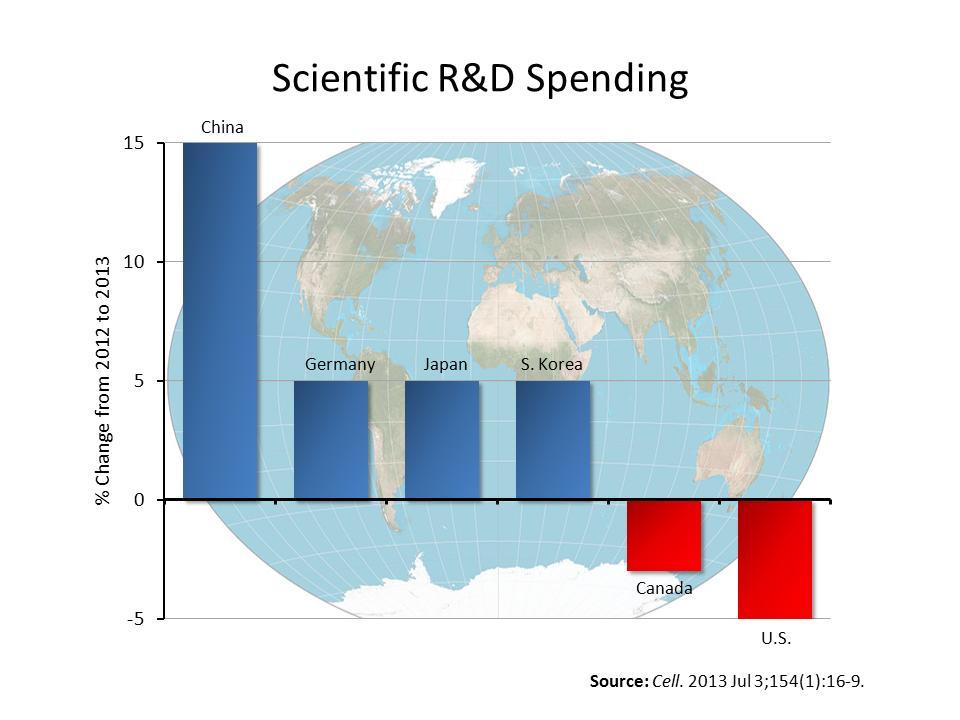Crowdfunding Scientific Research
Allison Crimmins on September 22, 2015

When one thinks of “crowdfunding” one usually thinks of techy gadgets or aspiring indie artists pressing a debut album. These groups raise money from people who are interested in owning the finished tech product or hearing new music from their favorite band. A new image to connect with the word crowdfunding is scientific research. Recently, scientists have turned to crowdfunding to support research that ‘the crowd’ wants to see conducted– enough so they’re ready to fund it themselves.
In the United States scientific research is largely funded through federal grants. But this model is increasingly broken. Award, success (the likelihood of a project or an idea getting funded), and funding rates are dropping. Not only is the amount of federal money dedicated to scientific research decreasing, but the process for accessing these funds is increasingly cumbersome. Bring up the topic of grants around research scientists and you are likely to hear a frustrated rant. If they are to be successful, scientists today must learn to be expert grant writers.
The process required to access federal money forces scientists away from their labs to instead waste precious research time navigating an often overwhelming series of bureaucratic hoops. Moreover, the funds awarded doesn’t typically reward big ideas or bold theories. On the contrary, the traditional funding model discourages high-risk high-reward research in favor of risk-averse incremental research aligned with achieving academic tenure.

From NIH Director ‘s Blog: One Nation in Support of Biomedical Research? by Dr. Sally Rockey and Dr. Francis Collins
Frances Collins, Director of the National Institutes of Health (NIH) – the largest funder of health related scientific research in the world – characterizes the gap between government-funded academic research and clinical trials as the “valley of death… where great ideas, unfortunately, go to die.”
For the drug development process, crowdfunding may be just the bit of momentum researchers like those at Remedy Plan need to get from the idea phase to the drug phase.
At Remedy Plan we believe that the power of people can help us fund our research and benefit society through scientific advancement. We believe that the objective to stop cancer will attract public support, and that support will help us avoid the perils of the “valley of death”.

Harnessing non-traditional resources to drive scientific breakthroughs in support of improved health is not entirely without precedent. The Cystic Fibrosis Foundation has successfully used “venture philanthropy” to fund biotech research and drive drug development. This research – powered by non-government sources – recently bore fruit through the approval of drugs by the FDA which are expected to extend the lives of nearly half of Americans suffering from this fatal disease. Research projects are being funded on crowdfunding sites like Kickstarter and Indiegogo, as well as new sites like Experiment, Petridish, and Rockethub.
At Remedy Plan, we also believe that there are broader societal benefits to crowdfunding scientific research. Crowdfunding works to tap into people’s inherent curiosity about the world and allows them to be a part of the discovery process. Crowdfunding will enable people to get directly involved in funding research, follow the progress of specific researchers, and share in their successes. Crowdfunding will also teach scientists to more effectively communicate their work, while helping people see scientists as the normal working people that they are. In this way we believe that crowdfunding can demystify science — can free research from its academic tower and make it accessible to a wider audience, perhaps even encourage more people to pursue STEM education and scientific careers. Which would certainly be a win for all of us.
